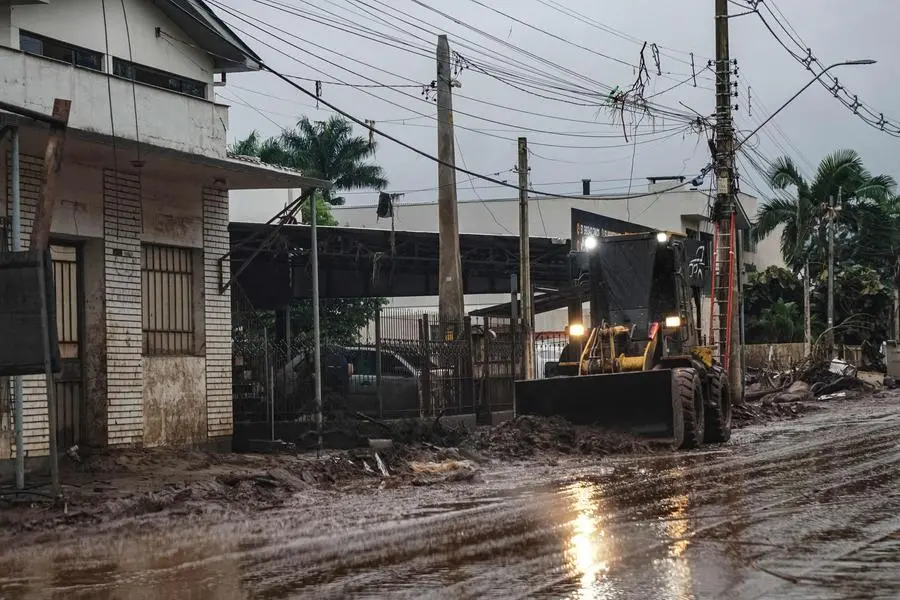PHOTO
Emergency workers continued search and rescue operations in flood-stricken southern Brazil on Saturday despite a new burst of torrential rains, as the death toll continued to climb.
Heavy rains in the state of Rio Grande do Sul last week caused rivers to overflow, leaving 136 people dead, 756 injured and affecting nearly two million people, the Civil Defense agency said.
Some 125 people are still missing, while more than 410,000 have been forced to flee their homes due to the disaster, which United Nations experts and the Brazilian government link to climate change and the El Nino weather phenomenon.
More than 92,000 homes were damaged or destroyed by the floods, according to the National Confederation of Municipalities.
Heavy rains resumed Friday in the regional capital of Porto Alegre as well as other already badly hit areas, and authorities were instructing local residents not to return to the flooded areas.
The region expects "isolated showers and storms" to continue into early next week, according to the National Meteorological Institute, which could bring about more flooding and the risk of electrocution.
- Aid distribution -
Water levels in the state's Guaiba River, which runs through Porto Alegre, reached historic levels this week.
On Saturday morning, they fell to 4.59 meters, the lowest level since May 3, before climbing again, provincial authorities said.
In Porto Alegre, which is home to 1.4 million people, rescuers and volunteers continued distributing food, drinking water, medicine and clothing despite the rain.
With water supplies still cut, bottles of clean drinking water were a scarce commodity in Porto Alegre, while tanker trucks deliver to shelters and hospitals.
In the devastated town of Eldorado do Sul, boats passed through the flooded streets, carrying food to those who refuse to leave their homes, fearing looting.
Elsewhere, trucks were pumping the muddy floodwaters from the streets and buildings.
In recent months, Brazil has been hit by historic floods, record-breaking forest fires, unprecedented heat waves and drought.





















